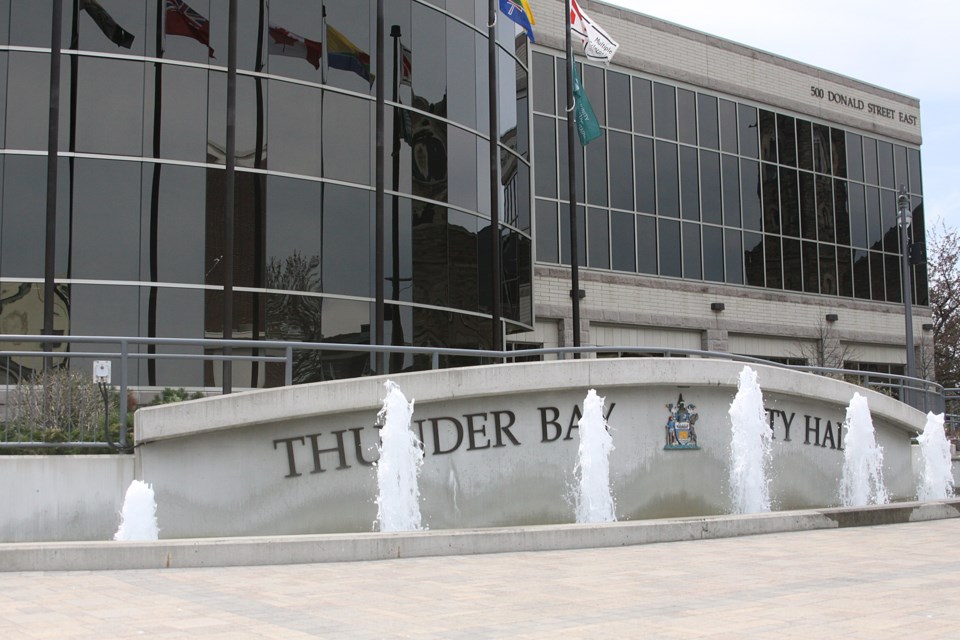THUNDER BAY – City council has tentatively set the 2021 municipal budget, making few major changes to the proposed version prepared by city administration.
The tax levy hike of 1.83 per cent (1.6 per cent after growth) is the lowest the city has seen since 2011, despite relatively anemic assessment growth of $465,000 in 2020.
Council made perhaps the most important budget decision in August, Mayor Bill Mauro argued, when it directed administration to hold the proposed tax levy increase to an unusually low 2.15 per cent (two per cent after growth) without making significant service cuts.
"You had already cut before you took your seat for the first budget meeting this year," the mayor told councillors.
Increases were reined in just a bit further over the course of a four-meeting budget review process that concluded Tuesday, with councillors heeding the dominant theme of pre-budget public feedback to limit tax increases during a year in which many residents and businesses are struggling.
Councillors will hear more feedback on the budget at a virtual public meeting on Feb. 4, and will have one last opportunity to make changes when it’s ratified on Feb. 8.
The impact of the levy increase on individual taxpayers varies depending on MPAC property value assessments and the education tax rate.
COVID-19 impact
COVID-19 costs projected at over $8 million in 2021 won't be funded by tax revenues. Instead, the city will use millions in federal/provincial COVID relief left over from 2020, and $3.9 million from the city's "rainy day" stabilization reserve fund, which has a current balance of over $12 million.
COVID costs remain unpredictable, however, city staff warned, as does the potential for further government relief.
Councillors approved six one-time cost saving options from a menu of 40 put forward by administration to reduce the drain on the stabilization reserve. That included deferring backup generator replacement at Fire Station #3 on Water Street ($150,000), cutting a planned pedestrian crossover ($75,000), deferring property acquisition for the Northwest Arterial highway improvement project ($50,000), and temporarily closing counter service for water and tax payments ($41,000).
Major reductions
The city plans to save $1 million by continuing a vacancy policy that maximizes gaps before rehiring open positions.
Council trimmed $150,000 from the tax levy by deferring updates to an environmental assessment for the Northwest Arterial. Ontario isn't expected to move on the project anytime soon, Mayor Bill Mauro said, though councillors agreed it should be a priority.
Council also cut $100,000 budgeted for a Thunder Bay letter sign Tuesday. That has no impact on taxes, but will free up reserve funds for other tourism-related investments in the future.
Councillors rejected some proposed cuts as unnecessarily deep, including an unsuccessful motion from Coun. Brian Hamilton on Jan. 28 to trim over $600,000 from the Community Economic Development Commission, Clean, Green and Beautiful committee, and Churchill Pool (closing it temporarily).
Major increases
Police services remain a major driver of increased spending, with the city’s contribution rising four per cent to $47 million, driven largely by negotiated salary increases and COVID-19 costs.
The budget boosted tax-supported capital spending by over $1 million, as the city looks to slowly narrow a looming infrastructure gap.
Some non-negotiable costs will increase dramatically: insurance premiums are rising by over $700,000 and WSIB costs are growing rapidly, jumping by $800,000 at Superior North EMS alone.
While they made few major changes over the course of the review, councillors looked to make an outsized impact with some smaller additions.
That included a transit fee freeze that cancelled minor transit pass increases, costing the city an estimated $68,000 in revenue. Councillors also approved another $15,000 each to city strategies on food, poverty, and aging.
Another $50,000 was added for dock upgrades at the Thunder Bay Canoe & Kayak Club on Boulevard Lake - only half of what Current River Coun. Andrew Foulds initially sought to perform more work, but enough to replace the main dock, city staff said.
Utilities
The water rate will increase by 3.5 per cent, representing under $22 for the average household using 200 cubic meters of water in a year, the city estimates.
The wastewater surcharge will also increase by 3.5 per cent, upping costs for the average household by just under $20.
Public feedback and ratification
Residents can watch the public post-budget meeting on Feb. 4, and the final ratification on Feb. 8 at the city’s website.
